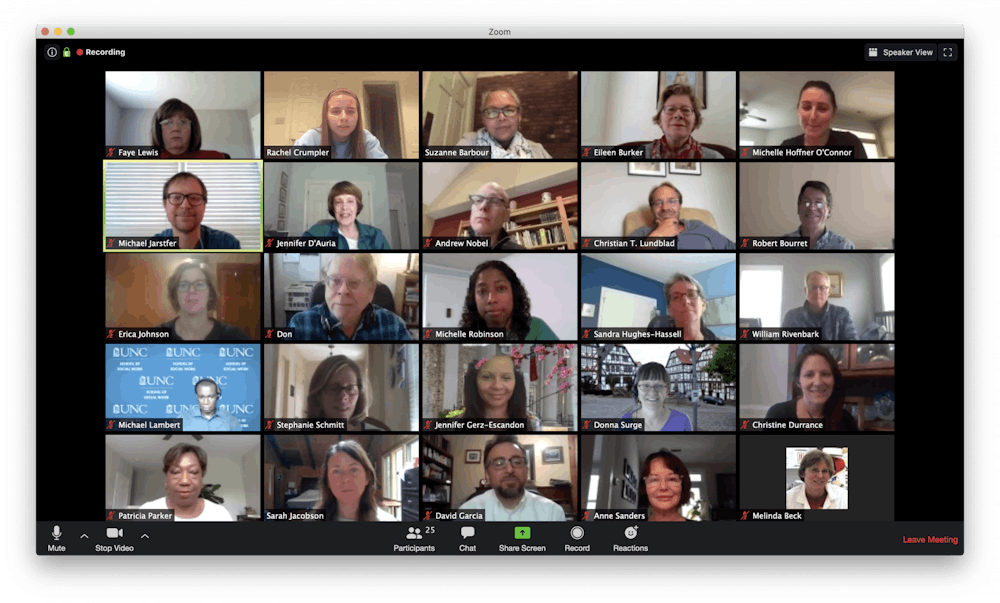The Administrative Board of the Graduate School discussed possible responses to COVID-19, its upcoming budget and a potential change to the GRE testing requirement at its meeting Tuesday afternoon via Zoom.
The Graduate School’s response to COVID-19 was the main topic of discussion at the meeting.
The Administrative Board has legislative powers in matters that impact graduate students’ education, according to the Graduate School Handbook. Dean of the Graduate School Suzanne Barbour is the chairperson of the board, which additionally consists of academic and health affairs faculty representatives appointed by the Chancellor.
Jennifer Gerz-Escandón, associate dean for Interdisciplinary Education and Fellowship Programs, discussed the Carolina Graduate Student COVID-19 Impact Program. The program will provide financial support to doctoral students whose paid summer experiences were cancelled or postponed due to the pandemic.
Gerz-Escandón said a steady stream of applications have been submitted since the program’s launch and funding will be awarded starting in May.
Barbour said actions have been taken in an effort to address graduate students’ concerns such as converting some courses to a pass/fail grading system, extending the deadline to complete degree requirements and offering weekly virtual social circles that graduate students can attend.
“We recognize that accommodations are only a part of the question,” Barbour said. “There’s also the issue of how students feel about themselves, feel about their prospects for the future, feel about staying in graduate school or doing something completely different. Student wellness is also something that is on our radar screen.”
The general themes emerging from responses to the COVID-19 Student Care Hub survey administered by the University are difficulty focusing and loss of ambition among students, Barbour said.
Michelle Hoffner O'Connor, the Board’s Graduate and Professional Student Federation representative, said another concern among graduate students is navigating conversations with advisers and thesis committees who may be expecting too much of students in an environment that may not be the most conducive to productive work.




